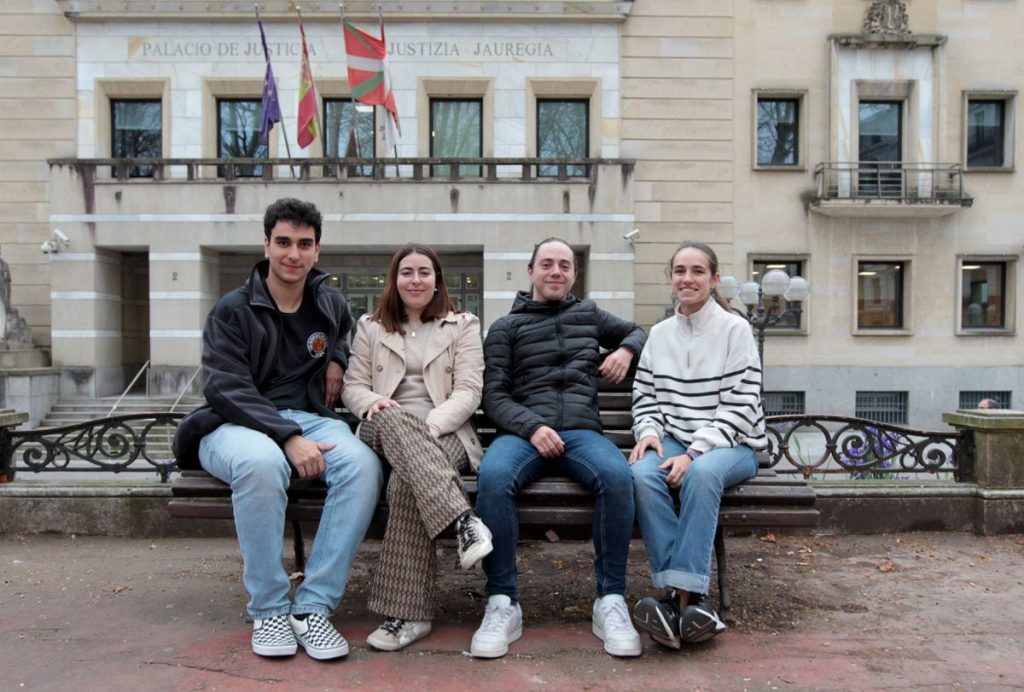Four young voters aged 19 and 20 meet at Café Iruña in Bilbao to discuss politics ahead of the upcoming regional elections on April 21. Each of them supports a different party, with their appearances not necessarily revealing their ideologies. Despite stereotypes, when they engage in debate, they all have clear ideas and know why they are voting for their chosen political party. Three of them are party members, while the fourth is a sympathizer. They discuss topics like energy transition, terrorism, education, and polarization, presenting arguments and listening attentively to each other’s viewpoints.
Born in 2004, the four young voters have grown up with the PNV in power, except for the three years when the socialist Patxi López was Lehendakari from 2009 to 2012. They acknowledge that EH Bildu is challenging the PNV for the top spot in votes and seats in the upcoming election. While one student from ADE plans to vote for the PP, despite being in the minority among his peers, others lean towards EH Bildu due to its focus on social issues and progressive values. They discuss how EH Bildu has positioned itself as a viable progressive alternative and how the PSE and other left-wing parties differ from EH Bildu in terms of social policies.
The conversation at Café Iruña also delves into the dynamics of youth voting preferences, with EH Bildu gaining strong support among younger demographics. The students discuss how EH Bildu’s grassroots campaigning and perceived moral superiority contribute to its popularity among young voters. The discussion also touches on the party’s relationship with its violent past, with some participants urging EH Bildu to take clearer steps towards condemning terrorism. They also debate the issue of independence and how it influences voting decisions, with topics like environmental policies and economic growth playing a role in their political preferences.
The youth voters express concerns about the future, including issues of environmental sustainability, job opportunities, and access to healthcare. They value political participation and accountability, critiquing political parties for not adequately addressing their concerns. Despite their differences in party affiliations and views, they engage in respectful and thoughtful discussions, expressing a desire for politicians to engage in similar dialogue. They also reflect on the lack of female candidates for the upcoming election and lament missed opportunities for gender representation in leadership roles.
As the conversation draws to a close, the young voters express hope for a more respectful and constructive political discourse, contrasting it with the negativity and hostility of political debates in Madrid. They part ways, with one of the participants expressing aspirations of becoming Lehendakari in the future. The discussion at Café Iruña highlights the diverse perspectives and concerns of young voters in Bilbao, underscoring the importance of engaging in informed and respectful political dialogue.















